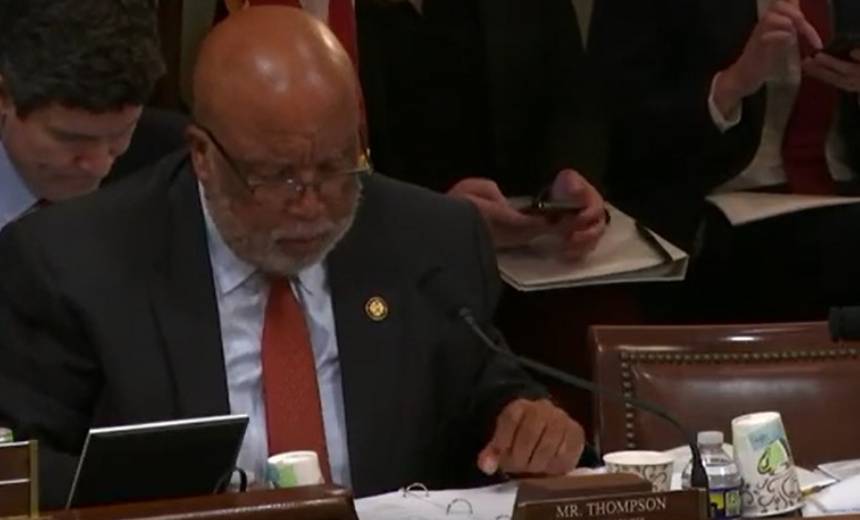Government
,
Industry Specific
Republicans Block Probe into Cyber Workforce Cuts, DOGE Access to Federal Systems

Republican lawmakers on the U.S. House Homeland Security Committee blocked a Democratic effort to investigate Elon Musk’s access to sensitive federal networks and the impact of President Donald Trump’s hiring freeze on an already strained cyber workforce.
See Also: New Attacks. Skyrocketing Costs. The True Cost of a Security Breach.
Republicans unanimously opposed a resolution of inquiry from committee Ranking Member Rep. Bennie Thompson directing the Department of Homeland Security to release records on security policies that gave Musk and the Department of Government Efficiency access to systems. Democrats pushed for the disclosure as controversy has grown over DOGE, with 21 U.S. Digital Service civil servants resigning Tuesday over its role in mass layoffs and budget cuts across the federal government. DOGE has assumed the place of the former U.S. Digital Service, a technology unit housed within the White House meant to improve the delivery of federal services to citizens.
The Mississippi Democrat condemned DOGE’s push to shrink the Cybersecurity and Infrastructure Security Agency, despite DHS initially exempting it from mass resignations. DOGE has undertaken an “unprecedented assault on the federal workforce” aimed at “bully[ing] federal workers out of their jobs despite lip service to national security exemptions,” Thompson said. Democrats also blasted DOGE and the White House for forcing employees to justify their jobs by responding to an email detailing their weekly tasks, arguing the effort risked exposing sensitive agency information to foreign adversaries (see: Elon Musk’s Federal Worker Email Sparks ‘Security Nightmare’).
“Just this weekend, federal employees were threatened with being fired if they did not respond to an email from a potentially insecure [Office of Personnel Management] email address,” Thompson said. “These policies have impacted cybersecurity workers as much as anyone else, making us more vulnerable to cyberattacks from China and other adversaries.”
Former federal officials, intelligence officers, and security experts warned against abrupt firing of key federal workers – some of who were later rehired after agencies acknowledged errors, including a purge of top nuclear specialists. Analysts also raised concerns about DOGE’s reported use of artificial intelligence to review vast amounts of data across federal agencies, warning it could create a honeypot for foreign adversaries targeting sensitive government information.
Republican House leaders, including Rep. Mark Green, R-Md., have pushed back against criticism, with Green summing up his stance on DOGE’s actions Wednesday: “The federal government is bloated. We are spending far too much money.”
Green alleged there have been widespread false statements made by members of Congress and the media surrounding DOGE’s budget and workforce cutting efforts, though he failed to specify any instances of inaccurate reporting.
“It’s not like CISA has been handicapped,” he said, noting how DOGE has reportedly cut an estimated 3% of the cyber defense agency’s workforce in its first month. “This is a bloated government, and it’s time for some layoffs.”
Following Wednesday’s vote against investigating DOGE’s impact on the cyber workforce, the Trump administration issued a memo directing agency leaders to implement large-scale workforce reductions and reorganization plans under the president’s executive order titled “Implementing The President’s ‘Department of Government Efficiency’ Workforce Optimization Initiative.”
